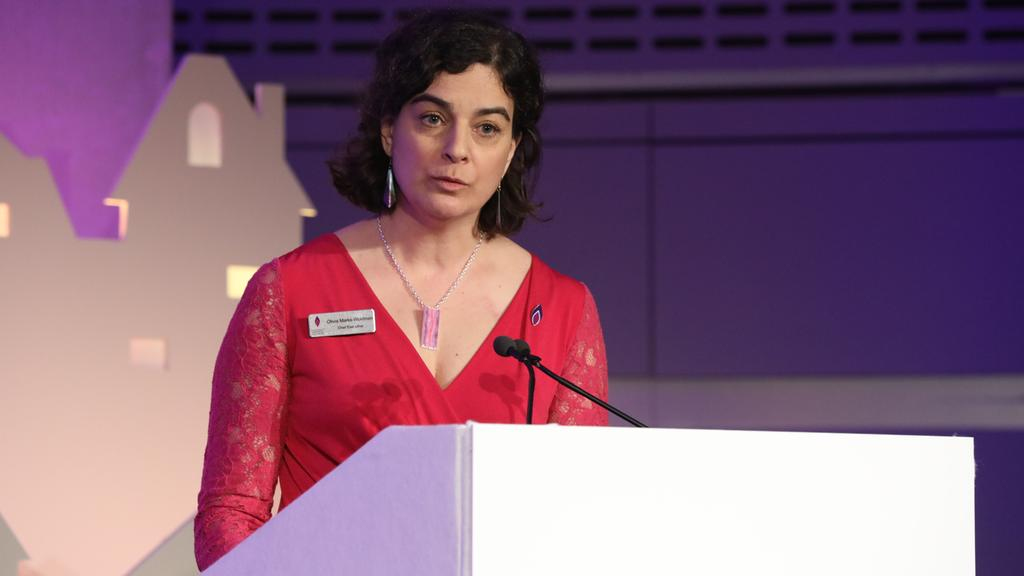The liberation of Bergen-Belsen by British forces on 15 April 1945 remains a defining moment in our nation’s history. The predecessor regiments of today’s Light Dragoons witnessed the full extent of Nazi brutality firsthand, confronting scenes of unimaginable suffering and horror.
Eighty years on, the regiment, based in Catterick, North Yorkshire, remains committed to ensuring new recruits understand the significance of this history. They learn about the crucial role their predecessors played in the camp’s liberation and the horrific reality they uncovered. For that, they deserve the highest praise – and their dedication to remembrance is an example that should be emulated by all, whether in schools, businesses, public institutions, or by individuals.
Britain played a vital role in defeating Nazi Germany, and our military history is deeply tied to the responsibility of confronting evil. The Light Dragoons ensure that new soldiers grasp not just the depths of human cruelty but, more importantly, the duty to stand against it. In doing so, they honour the legacy of those who came before them and continue to be a light in the darkness.
British soldiers supervise the distribution of food to camp inmates, April 1945 Imperial War Museum.
Yet, this dedication to memory should not be limited to military bases and those in uniform. It is on all of us – our shared responsibility, our collective duty – to ensure that the systematic murder of six million innocent Jewish men, women, and children is never forgotten.
The Light Dragoons are not just remembering the past – they are preparing for the future. They recognise that vigilance is not a passive act of commemoration but an active defence against those who would repeat history’s darkest chapters. Their commitment is commendable, but it also raises a challenge for the rest of us. Are our schools teaching the Holocaust with the depth and gravity it demands? Do businesses actively promote a culture of tolerance and respect, or are they complicit in perpetuating harmful stereotypes? Are our public institutions taking a stand against hate speech, or do they merely hide behind the shield of ‘free speech’?

Olivia Marks-Woldman, Holocaust Memorial Day Trust chief executive
Too often, the answer is a resounding no.
We sit in complacency, allowing the lessons of Bergen-Belsen to fade into the background. It’s not enough to applaud the Light Dragoons; we must follow their example. Otherwise, our praise is meaningless. The uncomfortable truth is that the Holocaust did not happen overnight. It was the result of a slow, insidious process: the dehumanisation of the ‘other’, the normalisation of hate, and the silent complicity of bystanders.
Bergen-Belsen may not have had gas chambers, but the death it inflicted was just as cruel – slow and agonising, from starvation, disease, and despair. Today, little of the physical camp remains; after the liberation, British troops burned the barracks and huts to prevent the spread of disease.
Yet, mass graves and monuments still stand, serving as powerful reminders of the site’s horrific past. Visitors walk the grounds in silence, grappling with the unimaginable scale of what the Nazis did. Many undoubtedly leave deeply moved, and perhaps some are even inspired to work toward a more just world.

Wearing protective clothing, men of 11 Light Field Ambulance, Royal Army Medical Corps evacuate inmates from one of the huts at Belsen. Imperial War Museum
Like all Nazi concentration camps, Bergen-Belsen will forever be a stain on humanity’s conscience. That is why at the Holocaust Memorial Day Trust, survivor testimonies are at the heart of what we do. These are not only historical accounts – they are deeply personal witness testimonies that give the human face to the historical facts and help us to try and understand the experiences of those who endured the unimaginable.
They serve as powerful reminders of the human cost of hate and intolerance. We are committed to raising awareness of where prejudice and hatred can lead. The rise of Holocaust denial and antisemitism today is deeply alarming – these forces do not just distort history; in distorting the historical truth they threaten the very foundations of our society. Britain has every right to be proud of its military history, but pride alone is not enough. The memory of Bergen-Belsen must be actively preserved – by all of us.
- Olivia Marks-Woldman is chief executive of the Holocaust Memorial Day Trust